Transforming Humanity’s Relationship with Nature
At COP 26, the Resilience Lab is focusing on the theme ‘shifting mindsets, shaping the future.’ Each day will focus on one of the eight novel pathways that can inspire a global transition towards symbiotic oneness with nature and planetary wellbeing. On Wednesday, 3 November, the Lab showcased the pathway towards transforming humanity’s relationship with nature. Renewing relationships with nature to reach symbiotic oneness is critical in securing the long-term wellbeing of people and the planet. During the day’s events in the Lab, participants were urged to engage in human activities that have a sustained net positive effect on nature, prioritizing holistic and relational approaches.
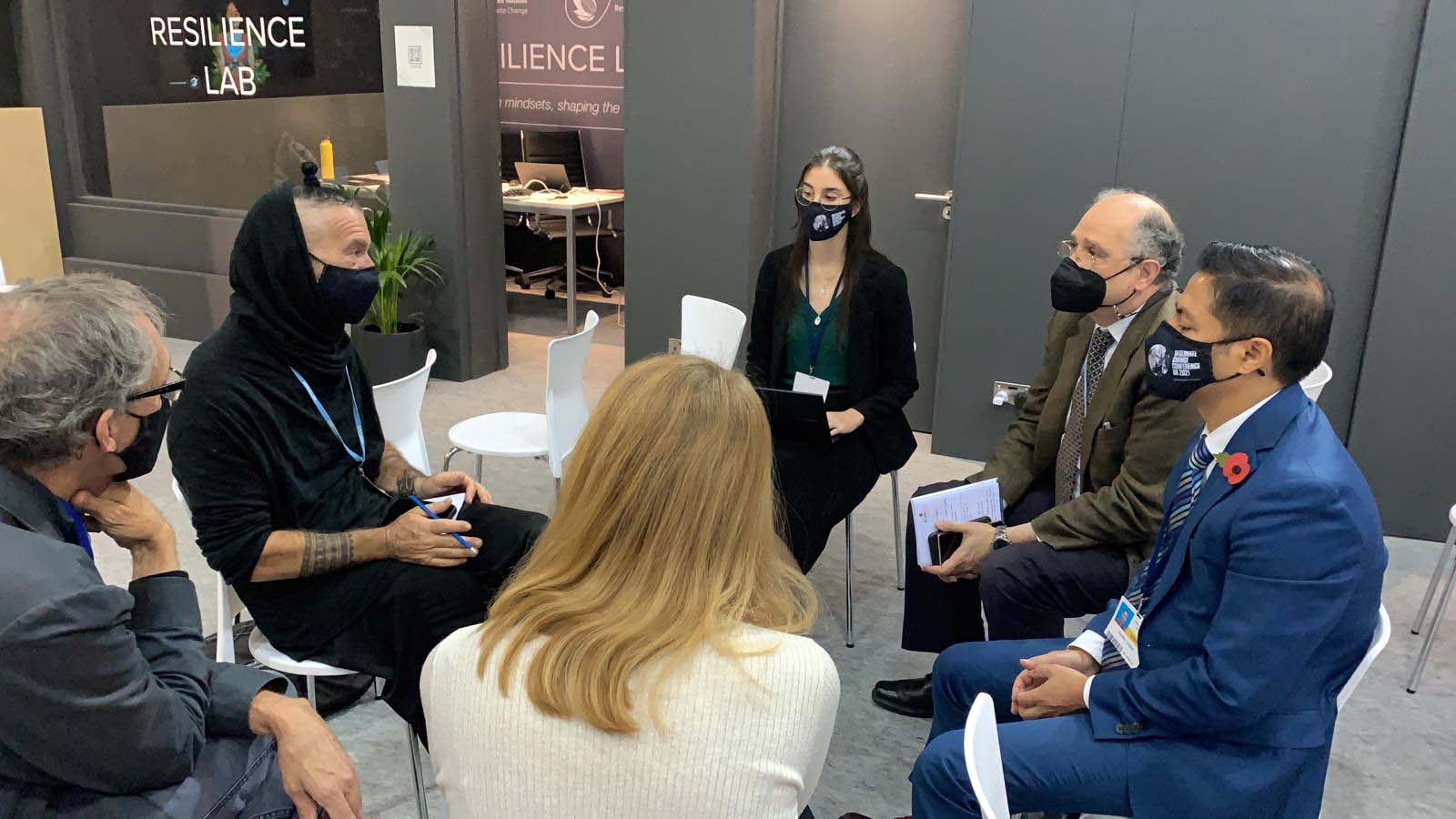
The Lab opened with a brainstorming session led by Tia Kansara, CEO of Replenish Earth, who challenged participants’ perception of “home.” Participants then discussed how one can connect to nature in a similar way as people do to their personal homes. They shared anecdotes about when they felt at one with nature, including stories of bewildered hikers, bitter-sweet gratitude towards experiencing sights that future generations might not, and enhanced intuition in the face of unexpected adversity. Kansara invited participants to share how they express their relationship with nature. The discussion dwelt on transgenerational connections, highlighting the need to respect our ancestral, evolutionary past, and protect our homes for the future.
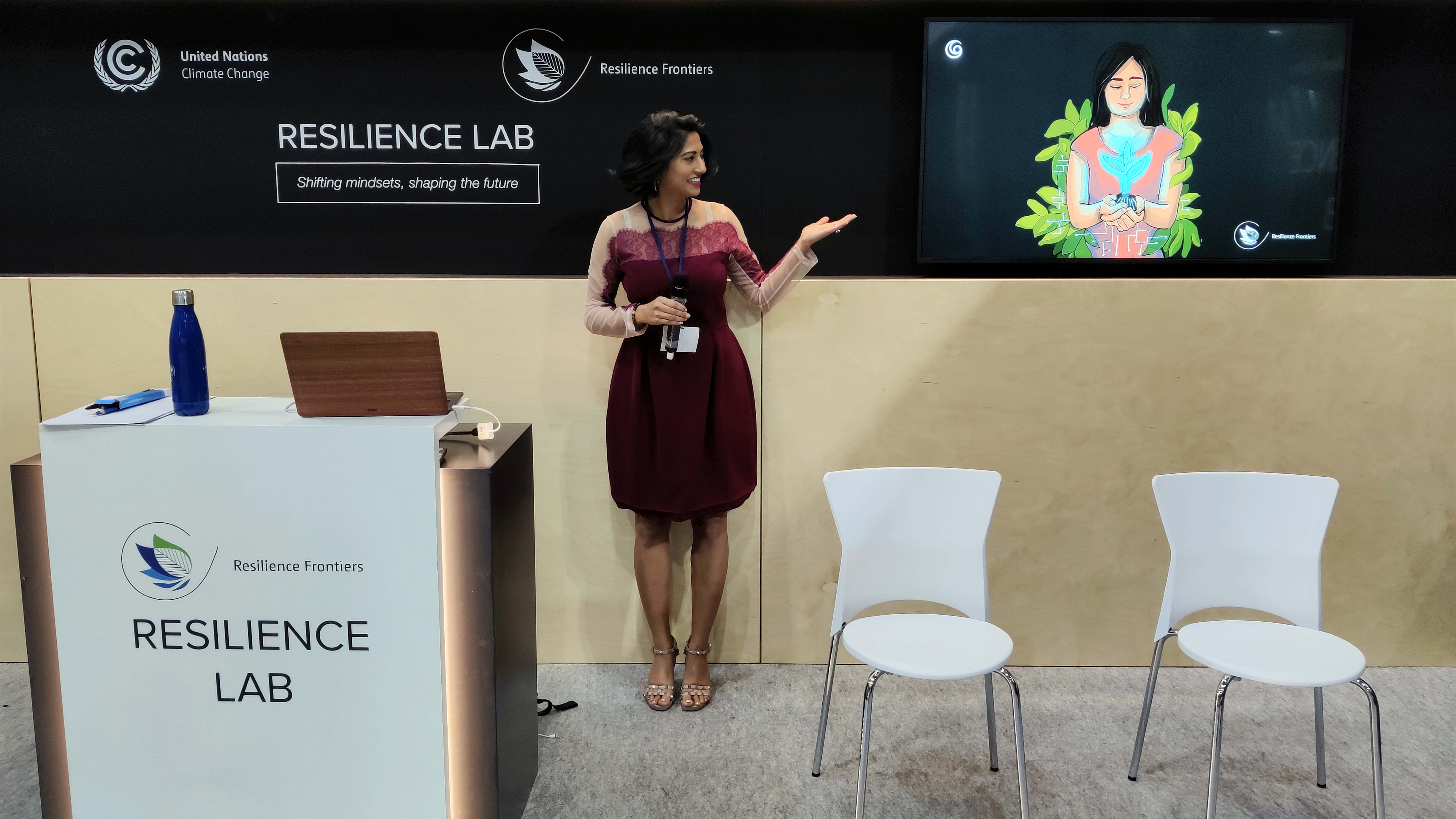
Jyoti Mathur-Filipp, UN Convention on Biological Diversity Secretariat, moderated the session on “transforming humanity’s relationship with nature.” She invited the audience to take part in a meditative journey backwards, from a resilient 2050 to the present day. She encouraged participants to imagine a world where nature thrives, doom-and-gloom climate news is no longer a reality, and biodiversity is at the core of our cultures and livelihoods. In response to a question on how to get to a resilient future, Bremley Lyngdoh, Founder and CEO of Worldview Impact, shared his vision of a world that rewards the custodians of nature through technology-conservation methodologies, which quantify the carbon they sequester or protect, fueling a decarbonized world that supports people at the grassroots level.
Mathur-Filipp opened the discussion with the audience by asking participants what they need to implement in the present to get to the ideal future. Participants called for a transparent supply chain to disassemble the capitalist structures that weaken the right of consumers to informative choices. Some underscored the need to empower people at the bottom of the economic supply chain, linking this to social justice, which they said has a core role in a sustainable future. Others pushed for a shift in consciousness, highlighting the importance of recognizing that, on an interpersonal level, humans and non-humans are part of an intrinsically synced system that sees no borders or countries.
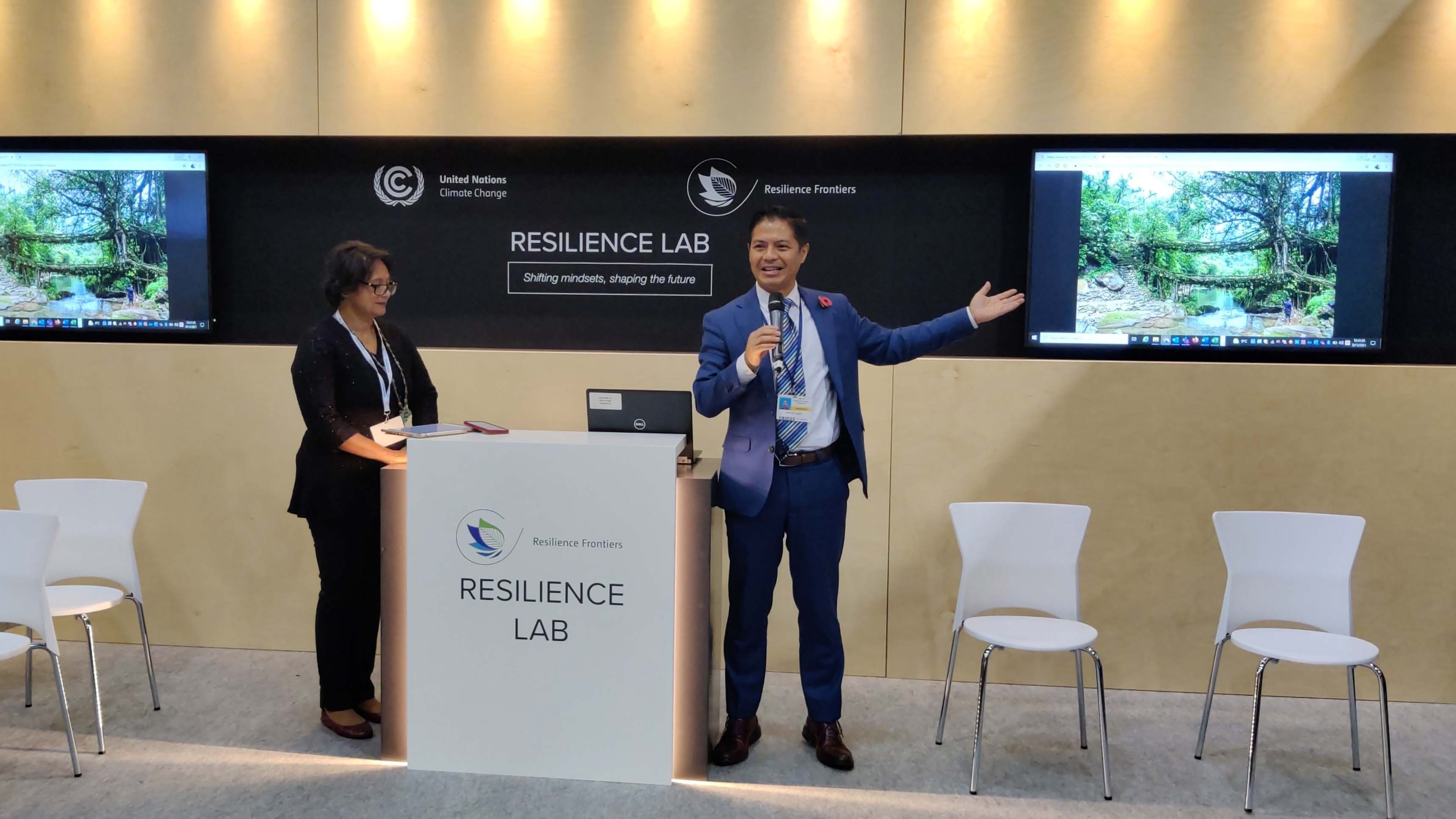
During the session on “three decades of transformation,” Marc Buckley, UN Advisor and Sustainable Development Goals (SDGs) Advocate, asked the audience “what does a world that works for everyone look like for you?” He challenged the audience to imagine a collaborative, resilient world through the eye of the individual. The panel, composed of Bremley Lyngdoh, Sandra Piesik, Architect and Technological Transfer Researcher, and Xiomara Andrea Acevedo Navarro, Climate Change Expert, Government of Nariño, shared their personal 2050 utopia. They envisioned an inclusive, equitable world, and discussed how biocultural elements and a one-ecosystem framework were at the crux of the ideal world. They also underlined the need to reconnect to our roots, moving away from an extractive economy and towards a regenerative one. Participants envisaged a world which not only secures human wellbeing through enhanced social aid programmes, but also non-human rights through incorporating the rights of nature into political systems. Panelists noted that the challenge to systematically change our world is an opportunity to rethink the concept of “development." The ensuing discussion covered an array of issues, from the need to change our language to one which does not include anthropocentric subtext, to prioritizing a slow-paced life and simple pleasures.
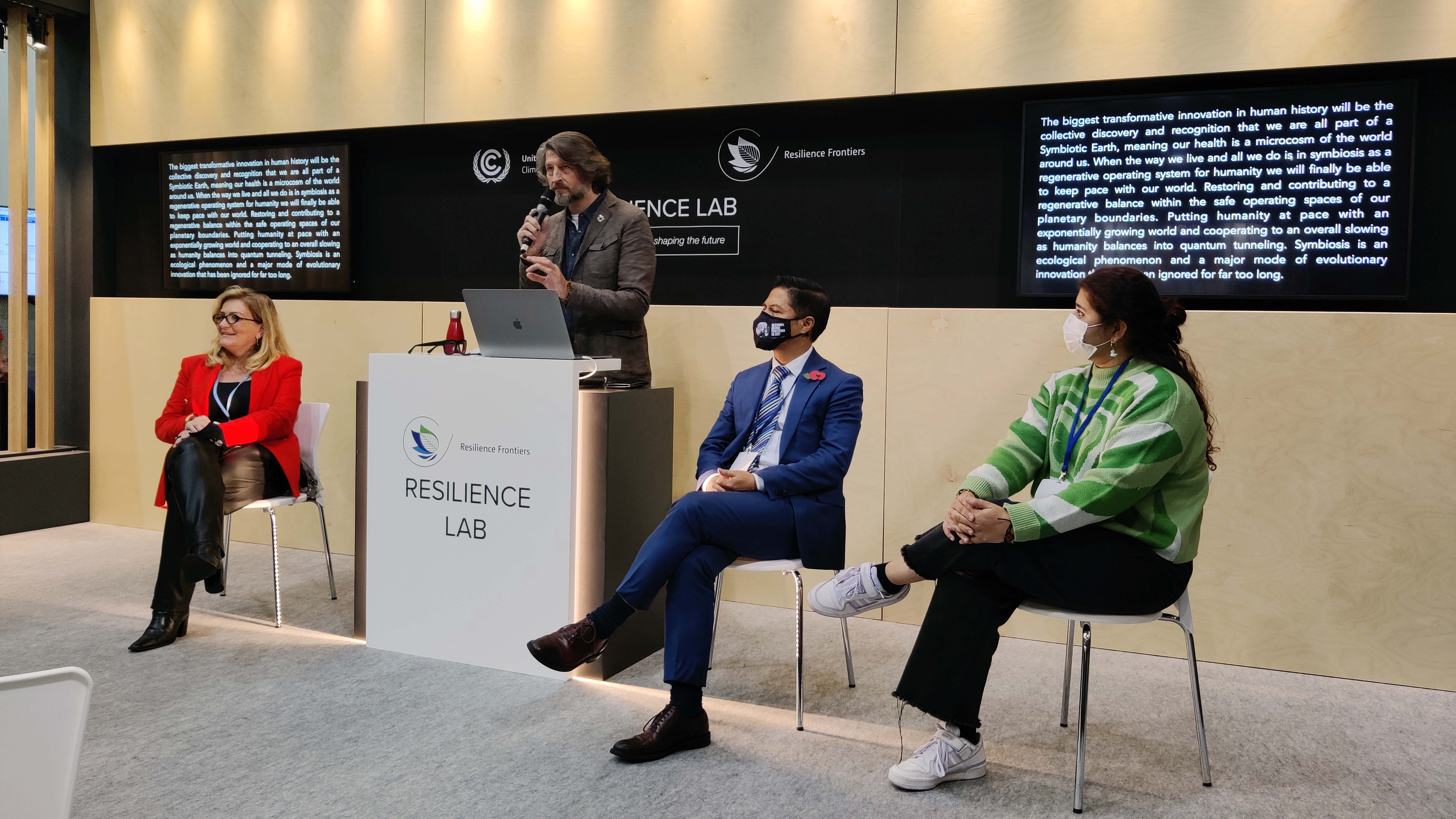
The final session of the day looked at examples of best practices working in alignment with the future-focussed values. For Resilience Frontiers, these innovative projects are called ‘Bright Lights.’ This session was co-chaired by Koko Warner, Adaptation Division, UN Framework Convention on Climate Change (UNFCCC) Secretariat, and Michael Craig Weisberg, University of Pennsylvania. Jill Hamilton, Director, Conservation International, spoke about the hidden potential of mangrove forests. She emphasized that blue carbon capacity is underrepresented within the carbon sequestration dialogue and spoke about community projects at Conservation International which combine traditional grey infrastructure with mangrove restoration initiatives. Tracey West, Poet and Founder of The Word Forest Organisation, circled back to carbon sequestration initiatives on land, specifically, those on the equatorial belt. She underscored the importance of safeguarding humanitarian wellbeing, highlighting that restoration projects go beyond planting trees. West said humans are all children of the soil but there is a need to shine a light on the people who are on the frontlines of climate conservation, which, she noted, her poetry aims to do.
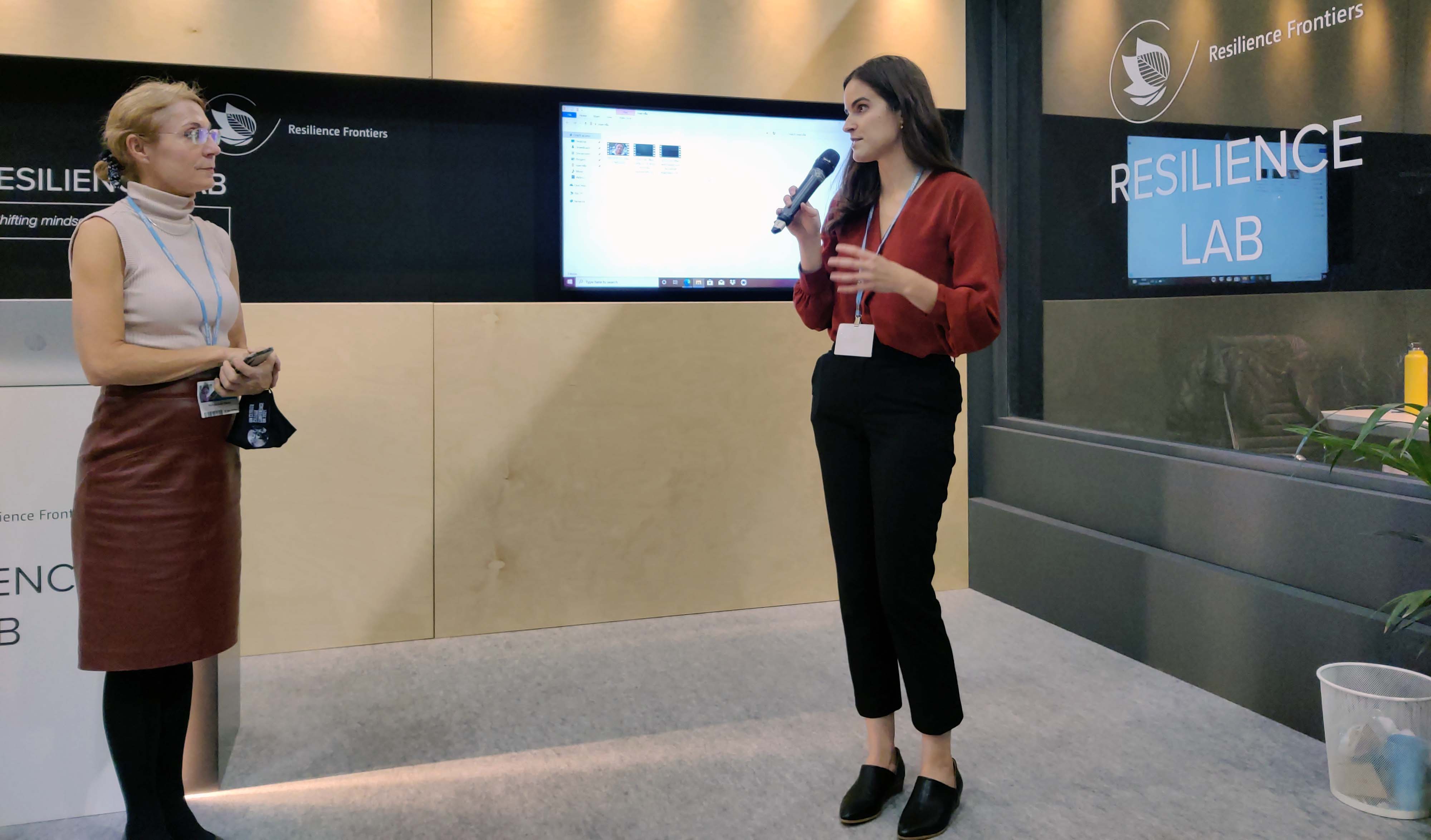
Throughout the day, the events at the Resilience Lab tackled humans’ relationship with nature from the perspectives of different people from a multitude of fields. Yet, two consistent overarching themes emerged:
- Justice and respect, not just towards neighbors, but also towards evolutionary lineage, future kin, and towards all life on earth are critical.
- Oneness; The biosphere sees no boundaries, be it geopolitical or taxonomic. Everyone is connected through the greater symbiosis of the planet.
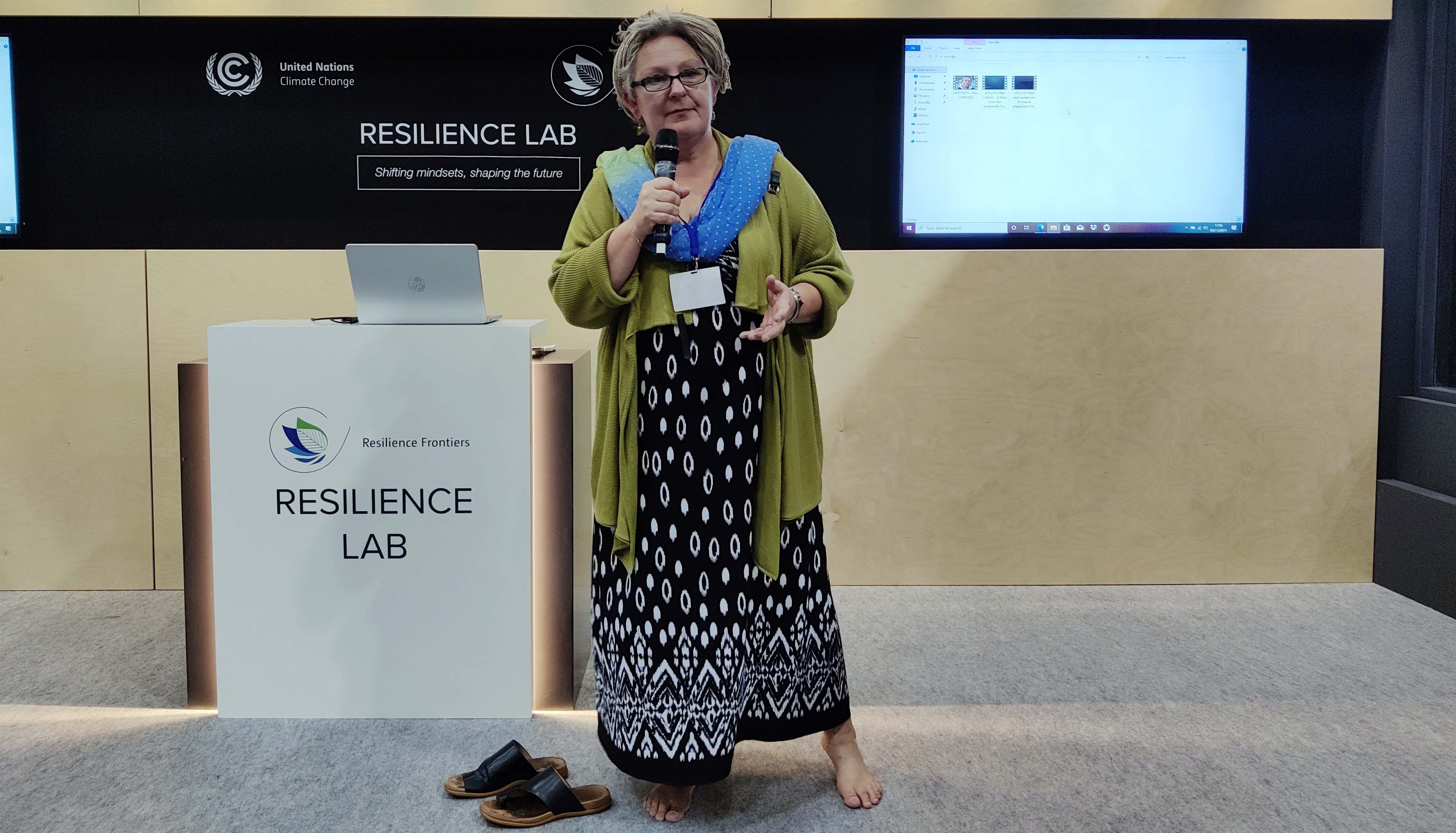
On Thursday 4th November, the Resilience Lab will discuss the second of the eight Resilience Frontiers pathways towards a regenerative future: Lifelong learning for environmental stewardship. The programme of events is as follows:
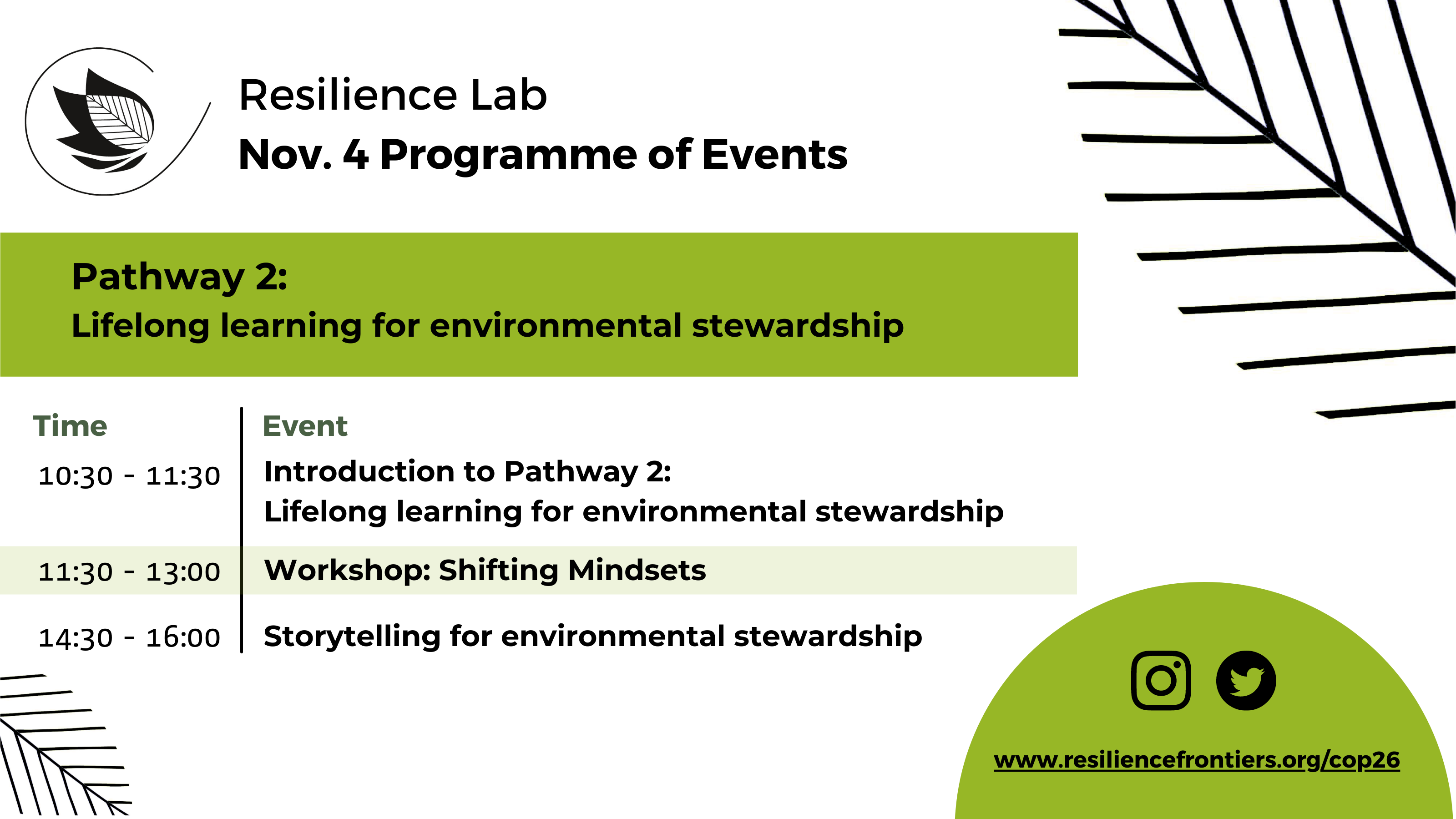
For more information about the Resilience Frontiers at COP 26, the programme of events and any updates, visit their website, and follow them on Twitter and Instagram.